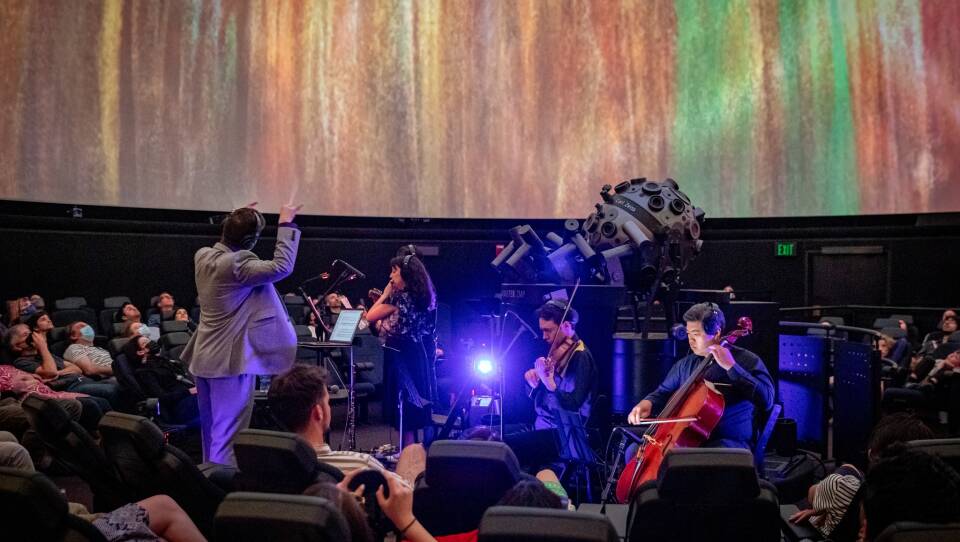When the world stopped in awe last week to gaze at the photos released from the James Webb Space Telescope, the snapshots accomplished a challenging feat: they made astronomy accessible to the general public. “Black Hole Symphony” performance at the Museum of Science this summer do the same, bringing the science of the universe to everyday listeners through music.
“It takes audiences on this journey straight to the heart of a black hole galaxy,” composer and conductor David Ibbett said on Boston Public Radio Friday.
The show, which can only be performed in planetariums like the Museum of Science’s, combines 360 degrees of visuals with a piece from the chamber orchestra inspired by the galaxy. As Ibbett explained it, cellist Johnny Mok plays representations of gravitational waves, flutist and piccoloist Jessica Smith plays representations of X-rays and gamma rays and singer Agnes Coakley Cox serves as the “voice of the universe,” alongside guitarist Matt Russo and violinist Ryan Shannon.
Ibbett grew up in a house of scientists but trained as a classical musician. The symphony, three years in the making, was born out of conversations between him and a scientist at the Harvard Smithsonian Center for Astrophysics. “We figured out ways that you can use your ears to really experience science in a way that you can't unless you have a lot of training to know how to read graphs and data,” he said.
The symphony sold out all its initial dates, but recently added another show on August 25. After their summer performances, they plan to tour in different planetariums and ultimately return to Boston.
James Monroe, senior producer of adult programs and theater experiences, said he was excited to bring accessible science to a wide range of people — especially in light of the photos just released by NASA’s new telescope.
“It makes us cool,” Monroe said about the recent astronomical breakthrough. “I think that's what's really exciting about discoveries like that and groundbreaking research, because the general public realizes, ‘Oh, my gosh, science is all around us and it is cool and it is interesting,’ and so it's always a victory for us when stuff like that happens.”






